
Statewide Dual Credit Modern World History: Unit 6, Lesson 5
- Subject:
- World History
- Material Type:
- Lesson
- Author:
- John Rankin
- Constanze Weise
- Anna McCollum
- Date Added:
- 02/20/2024

Statewide Dual Credit Modern World History: Unit 6, Lesson 5
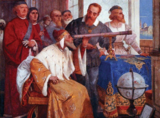
Statewide Dual Credit Modern World History: Unit 6, Lesson 1 An introduction to the Enlightenment which was an intellectual and philosophical movement that emphasized reason, science, and individual liberty. Its thinkers challenged traditional authority and advocated for religious tolerance, influencing political developments such as the American, French, and Haitian Revolutions.

Statewide Dual Credit Modern World History: Unit 6, Lesson 3 A discussion of 18th-century Enlightenment thinkers and their contributions to the social sciences, focusing on Adam Smith's economic theories and his opposition to mercantilism.

Statewide Dual Credit Modern World History: Unit 6, Lesson 2 A discussion of the Scientific Revolution, including its origins, influential figures, and lasting impact on various fields of study. The text highlights the shift in thought brought about by the Scientific Revolution, emphasizing the adoption of a rational and methodical approach to understanding the natural world.

Statewide Dual Credit Modern World History: Unit 6, Lesson 4 A discussion of the Enlightenment and its impact on political and social thought, including the American and French Revolutions. The text also explores the Enlightenment's influence on the abolitionist movement and women's rights.
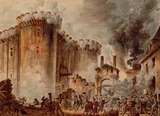
Statewide Dual Credit Modern World History: Unit 7, Lesson 2 A discussion of the causes of the French Revolution, the social structure of France, and the events that led to the rise and fall of Napoleon Bonaparte, detailing the impact of the French Revolution on France and Europe.

Statewide Dual Credit Modern World History: Unit 7, Lesson 3 A discussion of the Haitian Revolution, the only successful slave rebellion in the Atlantic world which led to the creation of Haiti, the second independent nation in the Americas. The new nation faced challenges, including gaining international recognition and a crippling indemnity payment to France, which severely impacted its economic development and contributed to its ongoing political and economic instability.

Statewide Dual Credit Modern World History: Unit 7, Lesson 4 A discussion of revolutions in South America during the 18th and 19th centuries, focusing on the Mexican War for Independence and the efforts of Simon Bolivar to liberate several South American countries from Spanish rule including the Battle of Ayacucho, the last major battle of the Spanish American War for Independence.
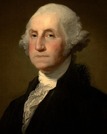
Statewide Dual Credit Modern World History: Unit 7, Lesson 1 A discussion of the American Revolution, its causes, and the formation of the new American government with a focus on Enlightenment influences on the American Revolution and the resulting Bill of Rights.

Statewide Dual Credit Modern World History: Unit 15, Lesson 7

Statewide Dual Credit Modern World History: Unit 15, Lesson 12 A discussion of the Berlin Wall highlights the impact it had on separating East and West Germany, both physically and ideologically. The construction of the wall symbolized the growing divide between the communist East and the capitalist West during the Cold War.

Statewide Dual Credit Modern World History: Unit 15, Lesson 11 A discussion of the Cuban Revolution, examining the political and economic climate of Cuba under Batista's rule, Fidel Castro's rise to power, the nationalization of American businesses, and the resulting Cuban-Soviet alliance that led to the Cuban Missile Crisis.

Statewide Dual Credit Modern World History: Unit 15, Lesson 5 A discussion of decolonization in Africa, highlighting the Mau Mau Rebellion, the Rhodesian Bush War, the Algerian War for Independence, and the Libyan Revolution. These events illustrate the complex and often violent transition from European colonial rule to independent African nations.

Statewide Dual Credit Modern World History: Unit 15, Lesson 6 A discussion of how, after WWII, the US became increasingly involved in Middle Eastern affairs, particularly concerning Iran, Egypt, and Israel. The US intervened in Iran to prevent potential Soviet influence, supported the creation of Israel, and became involved in various Arab-Israeli conflicts, aiming to maintain stability and limit Soviet presence in the region.

Statewide Dual Credit Modern World History: Unit 15, Lesson 9

Statewide Dual Credit Modern World History: Unit 15, Lesson 2 A discussion of the aftermath of World War II, focusing on the ideological differences between the United States and the Soviet Union that led to the Cold War, covering the implementation of the Truman Doctrine and the Marshall Plan to contain communism and aid in the rebuilding of Europe.

Statewide Dual Credit Modern World History: Unit 15, Lesson 1 A discussion of the origins of the Cold War, including the ideological differences between the United States and the Soviet Union, and the events that led to the conflict.

Statewide Dual Credit Modern World History: Unit 15, Lesson 10
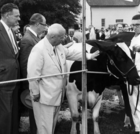
Statewide Dual Credit Modern World History: Unit 15, Lesson 8 A discussion of the Korean and Indochina Wars, Eisenhower's presidency, and Cold War policies.
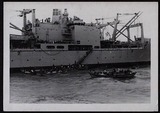
Statewide Dual Credit Modern World History: Unit 15, Lesson 13 A discussion of the key events in the Vietnam War, focusing on the escalation of U.S. involvement under President Lyndon B. Johnson and the subsequent withdrawal under President Richard Nixon, highlighting the domestic and international factors that influenced the course of the war.